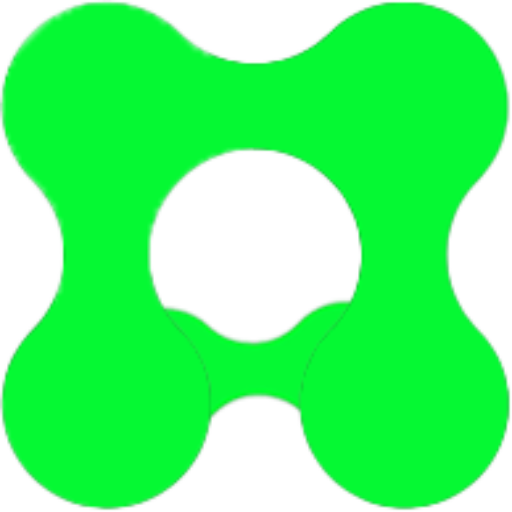Awareness
Art and artists censored by algorithms

A lowered neck
A “Neck Down” for the artist Arsen Eca is a new human figure
On March 16, 2019, Google, in an unprecedented act of algorithmic censorship, deleted my digital existence on the web.
The reason given? “Meaningless content”. Ironically, this deletion has become a poignant demonstration of the algorithmic dictatorship that I criticize. Thus, I became the first artist to undergo algorithmic censorship, a censorship which, in itself, confirms the themes I explore.
The trigger (among others) The Click for Nothing, a button that serves no purpose, but is disturbing.
My anger is immense in the face of our blind submission to the smoothing systems that envelop us. In the name of an empty utilitarianism, in the name of simplifying our lives by eradicating choice, we have capitulated. We are no longer faced with the complexity of choices, because the algorithms claim to calculate the “best” choice for us, and we, naively, smile. Where is our critical spirit in the face of this imposed intellectual laziness? Where is our will to decide for ourselves? This passive acceptance is an affront to our fundamental freedom to choose, to question, to live fully.
Our emotions, reduced to simple data, are scrutinized, analyzed and regurgitated under the guise of well-being by private entities. However, they are much more precious than gold. Since this censorship of March 16, 2019 by Google, I have resolutely committed to persevering on the path that I have traced since 2012. In response to this act, I sent my manifesto to Google, making the “click for nothing” a central piece of my approach. This symbolic gesture should be a collective act of resistance. To click for nothing is to challenge the system, it is to reaffirm our humanity in the face of the algorithmic reduction of our lives.

This manifesto is my commitment to pursuing an artistic odyssey where non-conformity, ambiguity and deviance are the compasses that guide my work. It is an open invitation to all who seek to see the world from a different perspective, outside the system and away from screens, to those who are ready to question, explore and imagine. Let us embark on this artistic journey, dismantle established norms and embrace the riches of ambiguity, clinamen and deviance.
The alternative manifesto
1. Non-Compliance: Making the Non-Compliant
My art takes on the mission of bringing into conformity what is traditionally considered non-conforming. Using the same tools and methods as current compliance and smoothing systems, such as algorithms and social control mechanisms, I create a kind of inverted mirror. This approach aims to expose the absurdities and rigidities of these systems. By borrowing their language and strategies, I transform nonconformist elements into vehicles of standardized critique. This creates a paradox where non-conformity itself is used as a means of revealing and challenging the forces of normalization and homogenization. My goal is to destabilize habitual perceptions, to encourage critical reflection on our world and its underlying structures. Through my art, I seek to demonstrate how norms and expectations can be manipulated, and how, by turning them on their head, we can question and reevaluate the realities we take for granted.
2. Ambiguity: The Freedom of Interpretation Every piece I design is imbued with deliberate ambiguity.
I firmly believe that art must leave space for the interpreter, allowing them to navigate through different meanings, to weave their own narrative threads. This ambiguity is essential: it respects the freedom of the observer, encourages the diversity of points of view and promotes an open dialogue between the work and its audience. Art is not there to dictate, but to suggest, to open multiple and varied paths of thought.
3. Deviance: An Invitation to the Alternative The essence of my art lies in its ability to deviate, to disrupt the regular flow of our perception and understanding of the world.
Through deviance, I seek to confuse, to lead to unexpected reflections, to offer alternative perspectives. My work is a journey into the unknown, a step outside the established system, an exploration of possibilities that extend beyond the limits of our daily reality.
Arsen Eca, in his philosophical reflection, has been exploring the precariousness of human emotions in the digital age for 15 years. It highlights a fundamental problem: in a world where technology and screens dominate our daily lives, our authentic emotions are threatened, risking becoming artifacts in the service of the digital economy.
According to Arsen Eca, our daily interactions, once rich in spontaneous and authentic emotions, are now subject to screens and algorithms. The latter, while revolutionary in their abilities to process and manage data, erode the depth and diversity of our emotional experiences. In this context, human emotions, which should be celebrated for their complexity and authenticity, are reduced to simple digital data, exploitable and monetizable.
For Arsen Eca, emotions are not just passing reactions; they are the beating heart of human experience, treasures of inestimable value. He sees in the preservation of real emotions an imperative necessity, an act of resistance against the emotional standardization imposed by digital technologies. Indeed, safeguarding our authentic emotions is a crucial issue in the fight against the flattening of our human experience.
In his vision, the role of parents and educators is paramount in shaping a future where children can grow up in a balanced environment, where human interactions and emotional experiences are prioritized over passive consumption of screens. For him, human emotions should not be sacrificed on the altar of technological progress; they must be preserved, celebrated and expressed in their purest form.
Arsen Eca’s artistic research work is a call for collective awakening. A call to recognize and value our emotions as the foundation of our humanity and our individual identity. It is a plea for a return to emotional authenticity in an increasingly digitized world, a world where, according to him, our emotions are worth infinitely more than gold.

